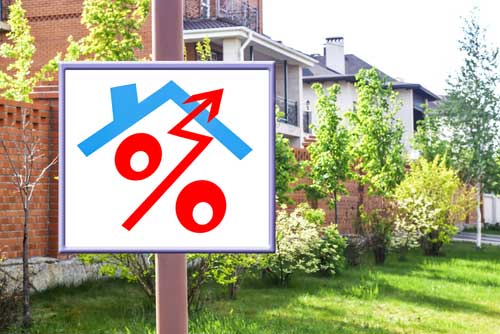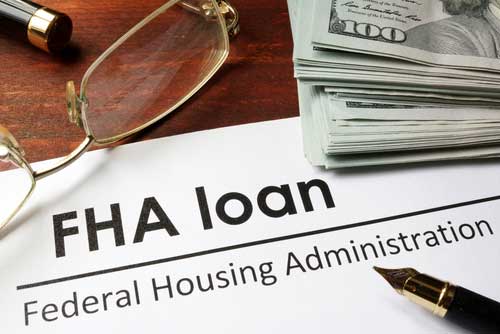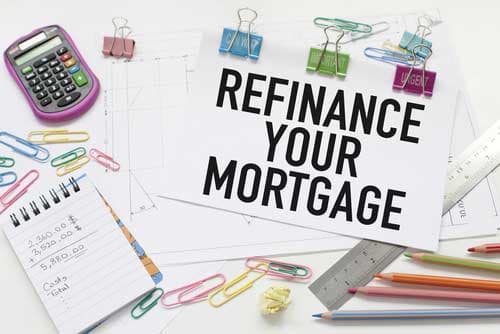Compare The Best Mortgage Rates in Florida

How to Compare Florida Mortgage Rates
Whether a mortgage is needed to finance a new home purchase or refinance a previous home loan, it's crucial that the borrower secures a favorable interest rate. MyRatePlan can help any borrower locate the lowest mortgage rates in Florida and compare all their available options, as it has all the tools and information necessary to get a clear picture of the home loan marketplace. When the borrower does their homework by researching mortgage options and comparing rates from different lenders, they can feel confident that they're paying too much interest, and having the lowest possible interest rate will save them a considerable sum over the long haul.

Tips On Getting the Best Home Loan Rates in Florida
Most people who are shopping for a new place in Florida are going to need a home loan of some sort as a way to finance their costs. The values on the low end of the market currently sit at around $50,000, so even if you're buying from that bracket it will still be nearly impossible to use cash to finance your purchase. You might wonder, then, what you need to do to secure a mortgage in the area, and the factors that contribute to the rates you'll receive. Getting the lowest home loan rate available should be your goal, and there are ways you can make this outcome more likely. Once you've found your dream house, the agent you're working with will suggest using someone from their pool of preferred lenders. And while there is nothing wrong with that, you should keep in mind that these lenders will be people with whom that agent has worked before, probably. Thus, you should always exercise just a hint of caution when considering these professional recommendations. Agents are often very helpful without a doubt, but some want to close on a deal as quickly as possible. A good home loan requires time and effort to process. If you are a first-time buyer, exercise patience and take a look around for the best bargains, regardless of whether your agent suggests otherwise. While there might be nothing you need to worry about, it pays to be prepared. MyRatePlan can help you by allowing you to compare home loan rates online, both from area businesses and national, big-name lending companies, to find a price in Florida that works for you. We should note here that keeping your credit score as high as possible prior to the buy will also have a positive impact on the mortgage rate you'll receive.

Different Types of Mortgages Available in Florida
There are a variety of loan products on the market to appeal to all kinds of different buyers. Mortgages can be separated into the fixed-rate and variable categories.
With a fixed-rate mortgage loan in Florida, the loan's interest rate will stay the same for the whole repayment term. This also means that the buyer's monthly payment stays the same until the loan is paid off, and it remains true even if the loan is going to last decades, as is the case with 30-year fixed-rate mortgages. For the buyer, this means that they always know how much they'll be paying and they don't need to worry about interest rate fluctuations.
Adjustable-rate mortgages (ARMs) in Florida work much differently, because they have interest rates that can adjust with the market. There is usually an initial period of time where the interest rate is locked in, and after that time period ends, the interest rate on the loan adjusts every year. Since this effectively blends the fixed-rate mortgage and the ARM, these loans are sometimes called hybrid ARMs. One example would be a 5/1 ARM, with the numbers indicating how long the interest rate is fixed. In a 5/1 ARM, the first five years of the loan have a fixed interest rate, and from then on out, the interest rate adjusts annually.

FHA Home Mortgages in Florida
Buyers must decide on whether to get a fixed-rate home loan or an ARM, but that isn't the only decision. They also need to figure out if they will go with a mortgage backed by the government or a more traditional home loan. Those traditional home loans don't have any insurance provided by the federal government. There are three types of mortgages that have government backing, which are FHA loans, USDA loans and VA loans.
An FHA loan is backed by the Federal Housing Administration, which is the Department of Housing and Urban Development's program for insuring home loans. One great aspect of FHA mortgages in Florida is that it's not just first-time homebuyers who can get them, but any buyer. FHA mortgages have benefits for both the borrower and the lender. The borrower can get their home loan while making a significantly lower down payment, sometimes as little as 3.5 percent of what the home costs. The lender is protected from any losses due to a borrower defaulting by the government insurance. The drawback for borrowers is that they're required to cover the cost of mortgage insurance, which means larger home payments every month.

Refinancing Mortgages in Florida
In Florida, refinancing a mortgage loan is like applying for a new one. The end result of this is that one may have to pay closing costs or any other fees required. This is, however, done when the loan is approved. If one seeks to refinance for the sake of enjoying lower rates, they should carefully consider the consequences of refinancing. The extra costs may offset some savings that one sees from refinancing. The exception to this rule is when one is refinancing from an adjustable rate loan to a fixed-rate loan. The reasoning is that the rates are more likely to go up in the future rather than going down.
Appearing as low-risk is the best strategy for those looking to refinance their mortgage. This can be achieved by keeping one's credit score above 700, keeping one's debt-to-income ratio low, and applying for a fixed-rate loan facility.
Compare The Best Mortgage Rates in
- Jacksonville, FL
- Miami, FL
- Tampa, FL
- Orlando, FL
- Alva, FL
- Wildwood, FL
- Macclenny, FL
- Holmes Beach, FL
- Edgar, FL
- Caryville, FL
- Crystal Beach, FL
- Nokomis, FL
- Maitland, FL
- Carrabelle, FL
- Morriston, FL
- Old Town, FL
- Port Salerno, FL
- Laurel, FL
- Saint Marks, FL
- Clarksville, FL
- Niceville, FL
- Orange City, FL
- Lake Geneva, FL
- Newberry, FL
- Safety Harbor, FL
- Davenport, FL
- Lake Alfred, FL
- Mc Intosh, FL
- Jupiter, FL
- Ochopee, FL
- Alachua, FL
- Clearwater, FL
- Haines City, FL
- Cottondale, FL
- Bostwick, FL
- Oviedo, FL
- Goodland, FL
- Cantonment, FL
- Homeland, FL
- Lee, FL
- Graham, FL
- Lochloosa, FL
- Hurlburt Field, FL
- Plant City, FL
- Scottsmoor, FL
- Panacea, FL
- Opa Locka, FL
- Lake Panasoffkee, FL
- O Brien, FL
- Lake Harbor, FL
- Hosford, FL
- Sanford, FL
- Weirsdale, FL
- Palmetto, FL
- Neptune Beach, FL
- Coral Springs, FL
- Mango, FL
- Callahan, FL
- Argyle, FL
- Eustis, FL
- Paxton, FL
- Astatula, FL
- Greenacres, FL
- Chokoloskee, FL
- Key Biscayne, FL
- Ferndale, FL
- Palm Harbor, FL
- Umatilla, FL
- Grandin, FL
- Lutz, FL
- Fort Meade, FL
- Holiday, FL
- Cross City, FL
- Leesburg, FL
- Lake Worth, FL
- Hialeah, FL
- Coral Gables, FL
- Hernando, FL
- Citra, FL
- River Ranch, FL
- Venice, FL
- Copeland, FL
- Everglades City, FL
- Sanderson, FL
- San Mateo, FL
- Lakeland, FL
- Port Orange, FL
- Mc Alpin, FL
- Fort Pierce, FL
- Belleview, FL
- West Palm Beach, FL
- Clarcona, FL
- Telogia, FL
- Satsuma, FL
- Atlantic Beach, FL
- Bonita Springs, FL
- Rosemary Beach, FL
- North Fort Myers, FL
- Welaka, FL
- Groveland, FL


 Menu
Menu